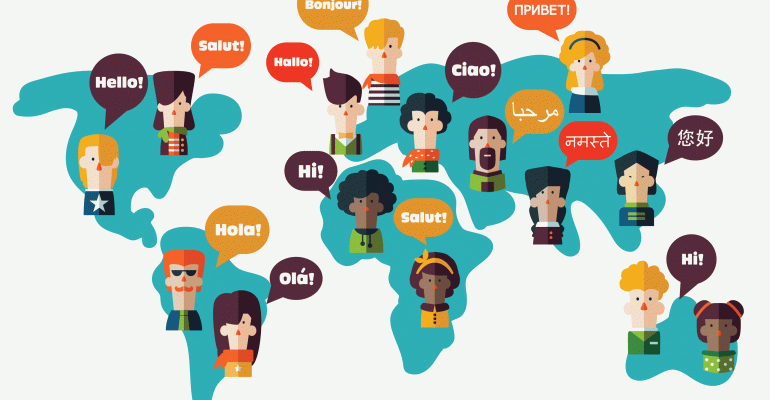Business people don't have to communicate with extraterrestrials (yet), but they can still learn a few things from the sci-fi thriller Arrival. The blockbuster film put a language professional in the leading role. Hollywood star Amy Adams plays Dr. Louise Banks, a linguistics professor asked by U.S. Army Intelligence to help communicate with an alien species that has arrived on Earth. However, the film blurred the lines between the three professions of translator, interpreter, and linguist, reinforcing some common misconceptions most business people have.
In today’s globalized world—even without alien arrivals—many people need help with language. When you do, it’s helpful to know the difference between the types of professionals involved in the process. Who do you call for a meeting with a new or potential overseas exhibitors for your business event or when you need to localize your meeting's website for foreign markets? Who do you contact when you receive medical records from an employee who required medical attention while at an overseas conference?
Put simply:
Translators help you with written material, like contracts, letters, brochures, and websites. Before pushing that "Would you like to translate this?" button for the meeting brochure that your marketing people spent weeks refining, remember that the nuanced language geared at persuading others to attend is best translated by a human who specializes in your organization's line of business.
Interpreters help you with spoken language in business, legal, and medical settings.
• Say a potential client wants to visit your venue before deciding to book a meeting. What a great impression you would make if you hired an interpreter to accompany you both on a guided tour so that all questions and answers could be handled in each party's dominant language, putting everyone at ease. Hiring the same interpreter for a preliminary or follow-up telephone or video-conference meeting would go that extra mile toward sealing the deal.
• Savvy business owners and managers also hire interpreters for employee health and safety training meetings that include limited-English-proficient workers. This helps them meet OSHA compliance requirements and keeps their operations running smoothly and without interruption from preventable accidents.
• Conference interpreters ensure that all attendees at an international business or medical gathering understand the presenters' messages and are able to ask questions about the presentation's content.
Linguists analyze language (including structure, history, and more). To decipher an unknown extraterrestrial language, the linguistics professor in Arrival works with the aliens to learn the basic concepts of their language—the individual words and what they mean, building a lexicon as she goes. In the end, she uses complex, computer-assisted analysis to break the code and understand how the alien language works. This is neither translation nor interpreting, but linguistics.
In the real world, linguists help translators do their jobs by developing and updating the terminology-management software that allows translators to work more quickly and efficiently, resulting in lower costs for their client and ensuring consistency throughout the entire translated document or website.
One thing that translators, interpreters, and linguists all have in common is that they draw upon their extensive experience to solve linguistic “puzzles.” The stakes might not be as high as saving the planet from potential annihilation, but the work of all three professions is vital all the same.
In order to arrive at the right language professional, you have to understand your needs. In the movie, the producers understood they needed a language expert as their protagonist, even if they mixed up the terms for how she went about helping them communicate with the aliens. What they did get right was to demonstrate that language professionals all draw upon:
• extensive language study
• expertise in the field
• research skills
• their ability to learn and utilize the latest technologies to solve linguistic “puzzles.”
Anne Connor is a professional Spanish- and Italian-to-English medical and legal translator and an active member of the American Translators Association. The American Translators Association represents over 10,000 translators and interpreters across 91 countries. For more information on ATA or translation and interpreting professionals, visit www.atanet.org.




